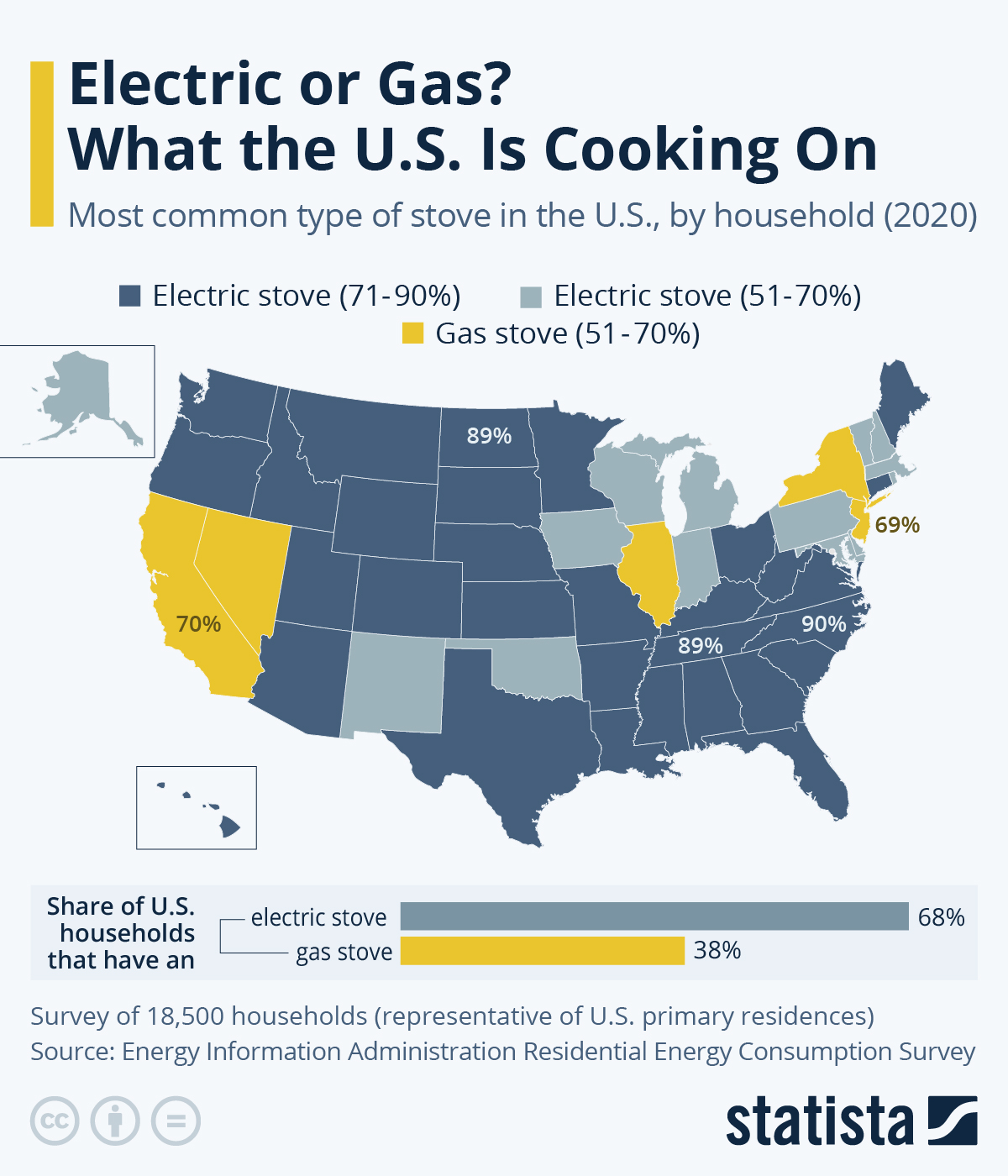Using a gas stove seems innocuous enough but studies have long shown the negative effects that these appliances have on indoor air quality. The U.S. Consumer Product Safety Commission is now considering new regulations for gas stoves, according to information by Bloomberg. The federal agency could ban or prescribe alterations to appliances, as “any option is on the table” regarding the action, a commissioner told the outlet.
Nitrogen dioxide, carbon monoxide and fine particular matter are among the pollutants tied to gas stoves. According to studies collected by Harvard Health, nitrogen dioxide has been linked to childhood asthma and its concentration also quickly surpasses limits for outdoor air set by the EPA when the stove is in operation. Fine particular matter, especially of the tiny PM2.5 variety, has been linked to illnesses like lung and heart disease. Additionally, a study by Harvard University found high concentrations of so-called volatile organic compounds present in natural gas burned by households. The substances have been linked to cancer. In October, Consumer Reports strongly suggested that any new stove purchased by households be of the electric variety.
Data by the Energy Information Administration shows which areas in the U.S. would be most affected by restrictions on the sale of gas stoves. In California and New Jersey, a respective 70 percent and 69 percent of households have a gas stove, the highest rates in the United States. Gas stoves are also the most common type of stove in Nevada, Illinois and New York.
Electric stoves are overall more common in the U.S., with 68 percent of households owning one opposite 38 percent which have a gas stove. In a majority of states, electric stove ownership surpasses 70 percent of households. It reaches a high of 90 percent in North Carolina and 89 percent in Tennessee as well as North Dakota. While electric stoves still win out over gas stoves, the picture is more mixed in New Mexico, Oklahoma and many states in the Northeast and Great Lakes regions.














